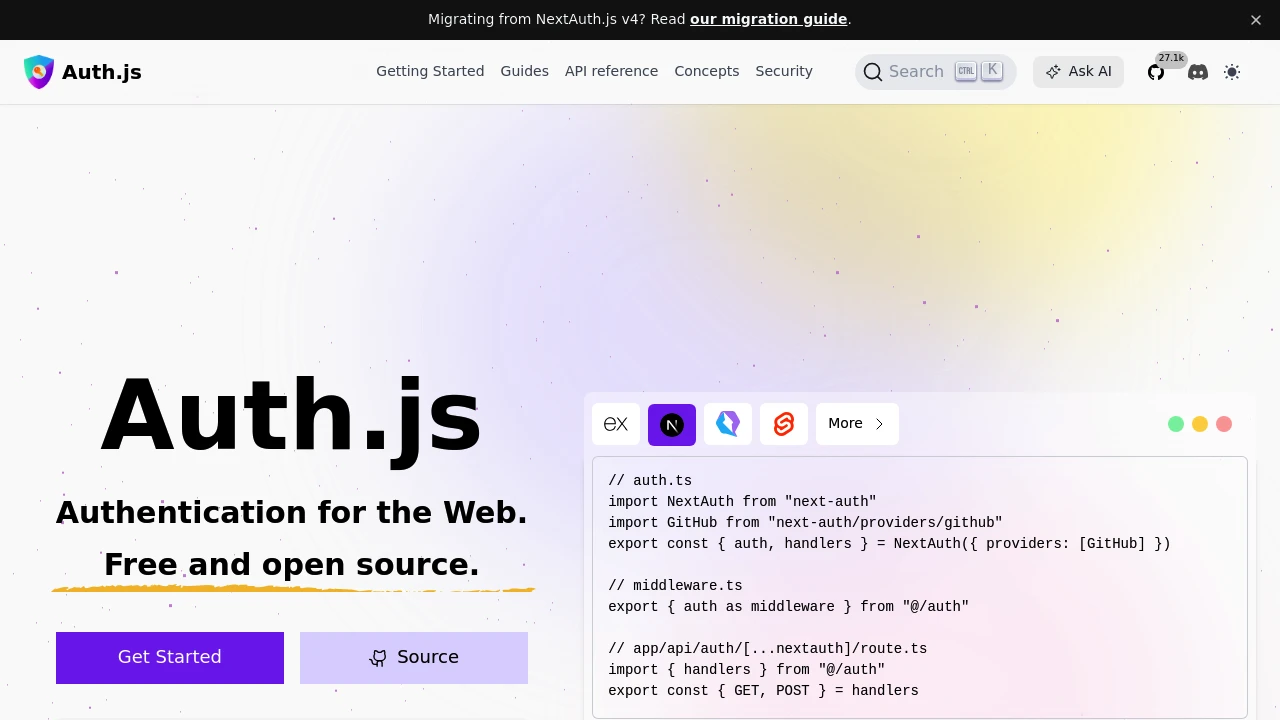Auth.js vs WorkOS
Learn how Auth.js and WorkOS differ in their key features like authentication, enterprise auth, security, user management and compliance, so you can decide which of these authentication providers is best for you.
Auth.js

Feature Comparison
WorkOS has significantly broader feature support than Auth.js, with 38 supported features versus 15. WorkOS fully covers authentication and machine to machine (m2m) authentication and more.
Auth.js comes with over 80 preconfigured OAuth providers (Google, GitHub, Twitter, Facebook, etc.) so users can sign in with existing accounts
Session settings allow adjusting `session.maxAge` and `updateAge` to control how long sessions last; default expiry is 30 days but can be configured for longer durations
| Auth.js | WorkOS | |
|---|---|---|
Auth.js comes with over 80 preconfigured OAuth providers (Google, GitHub, Twitter, Facebook, etc.) so users can sign in with existing accounts | ||
Session settings allow adjusting `session.maxAge` and `updateAge` to control how long sessions last; default expiry is 30 days but can be configured for longer durations | ||
Compliance Comparison
WorkOS offers significantly broader coverage than Auth.js, supporting 4 certifications and regulatory frameworks compared to 0 for Auth.js. Since Auth.js is open source and does not include compliance certifications, you’ll need to manage compliance yourself.
| Compliance | Auth.js | WorkOS |
|---|---|---|
